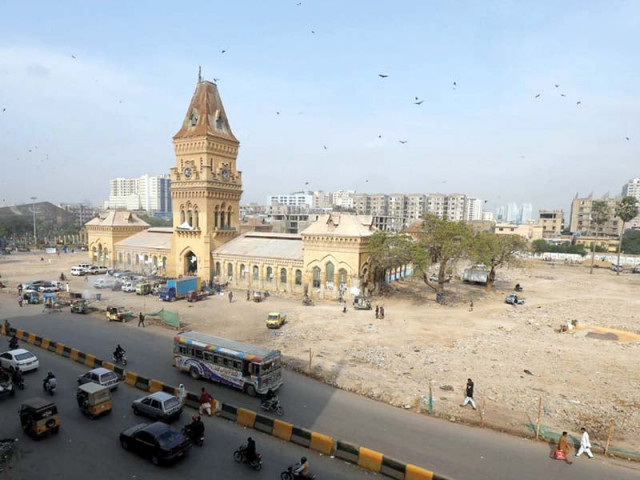Uplift schemes may get Rs1.9tr
Budget raised amid concerns over growing size of unfunded schemes

The Annual Plan Coordination Committee has proposed Rs1.9 trillion for development spending in the next fiscal year amid concerns over growing size of unfunded schemes that are causing delays in completion of projects and also increasing their costs.
The proposed budget of Rs1.9 trillion for the federal, four provincial and special areas governments is higher by 27.7% or Rs414 billion over this year’s original allocations of Rs1.5 trillion, according to a press briefing by Planning Minister Asad Umar on Friday.
For the parliamentarians-recommended schemes, the government has proposed an amount of Rs56 billion in the next fiscal year, which is almost double the amount allocated in the last budget.
The federal Public Sector Development Programme (PSDP) has been proposed at Rs900 billion, which is 250 billion or 39% higher than outgoing fiscal year’s original allocation, said Umar. The impact of the additional Rs250 billion spending on the next year’s growth rate will be 0.3%, said the minister.
However, the ministries and the departments had demanded an allocation of Rs2.5 trillion for FY2021-22 and the proposed budget of Rs900 billion is just 36% of the needs, suggesting how the work will be impacted by the lack of funding.
Despite a huge gap in funding, the PTI government has decided to include Rs5.5 trillion worth new 215 schemes in the next year’s PSDP that will further spread out the already thin resources. An amount of Rs250 billion has been earmarked for these new schemes for carrying out work in the next fiscal year.
To a question whether it was a prudent policy to add more schemes when the existing ones cannot be completed due to lack of resources, Umar said that this practice of giving about 20% to 30% budget to new schemes has been going on for years.
There will be 688 ongoing projects having total cost of Rs7.2 trillion that will get Rs750 billion allocations in the next fiscal year.
Due to inclusion of new schemes and lack of adequate funds, many critical projects are affected.
For instance, the China-Pakistan Economic Corridor (CPEC) and its supporting projects will “be funded as per available fiscal space”. Efforts would be made to launch railways project ML-I in FY2021-22. An amount of Rs10.6 billion is proposed in the next fiscal year against the total project cost of Rs1.2 trillion.
For the Zhob to Kuchlak Road project of the CPEC western corridor a budget of Rs5 billion has been given against the need of Rs6 billion. For improvement and widening of Chitral-Booni-Mastuj-Shandur, Rs2 billion are proposed against Rs16.8 billion requirements.
The APCC was informed that priority shall be given to ongoing projects, modernisation of the physical infrastructure and increasing inter-provincial and regional connectivity including initiatives under CPEC.
The minister said that the four provinces combined development spending will be Rs1 trillion – up by
The government has added four new special development packages, adding significant cost into the outstanding projects.
Under the accelerated development plan for southern Balochistan as many as 199 projects worth Rs601 billion have been included, the APCC was informed.
The Karachi Transformation Plan is also waiting for adequate funding, having total cost of the federal share Rs739.2 billion. The socio-economic development of Gilgit-Baltistan will cost Rs370 billion but has not been fully funded. Similarly, the development plan for 14 priority districts of Sindh has a cost of Rs444 billion for execution of 107 projects, but without adequate resources.
The newly merged districts of Khyber-Pakhtunkhwa will get Rs54 billion allocation.
For the outgoing fiscal year, the government had allocated Rs650 billion but the actual spending in nine months remained at Rs270 billion.
To a question whether the government will be able to fully utilise Rs900 billion in the next fiscal year, the minister agreed that there was serious absorption capacity issues. “The business as usual will result into lapse of the development funds,” said the minister.
PSDP breakdown
Overall, all the federal ministries will get Rs526 billion in the next fiscal year, including Rs36 billion to be arranged by taking foreign loans. The National Highway Authority (NHA) and Wapda will get Rs167 billion, including Rs60 billion in foreign loans.
The Ministry of National Health Services’ budget has been given Rs22.8 billion in the next fiscal year. The Higher Education Commission will be allocated Rs37 billion. The education ministry has been allocated Rs9.2 billion.
For special areas like Azad Jammu and Kashmir and Gilgit-Baltistan, Rs61.8 billion has been proposed in the new budget. An amount of Rs14.3 billion has been proposed for the climate change ministry. Around Rs12 billion has been allocated to the Ministry of Food and Agriculture.
The Ministry of Finance has been given Rs94.6 billion, including Rs54 billion for the districts merged into Khyber-Pakhtunkhwa and erstwhile Federally Administered Tribal Areas.
The Ministry of Railways’ budget has been increased to Rs30 billion. The Water Resources Division has been given Rs110 billion.
The NHA budget has been given Rs114 billion and Pakistan Electric Power Company (Pepco) will get Rs53 billion. Overall, the energy sector will get 11.5% of the Rs900 billion and the transport and communication sector has been given lion’s share of 29.5%, according to the PSDP document.
The planning minister said that the Rs67 billion will be given in viability gap funding for projects that will be initiated under the Public Private Partnership mode.



















COMMENTS
Comments are moderated and generally will be posted if they are on-topic and not abusive.
For more information, please see our Comments FAQ